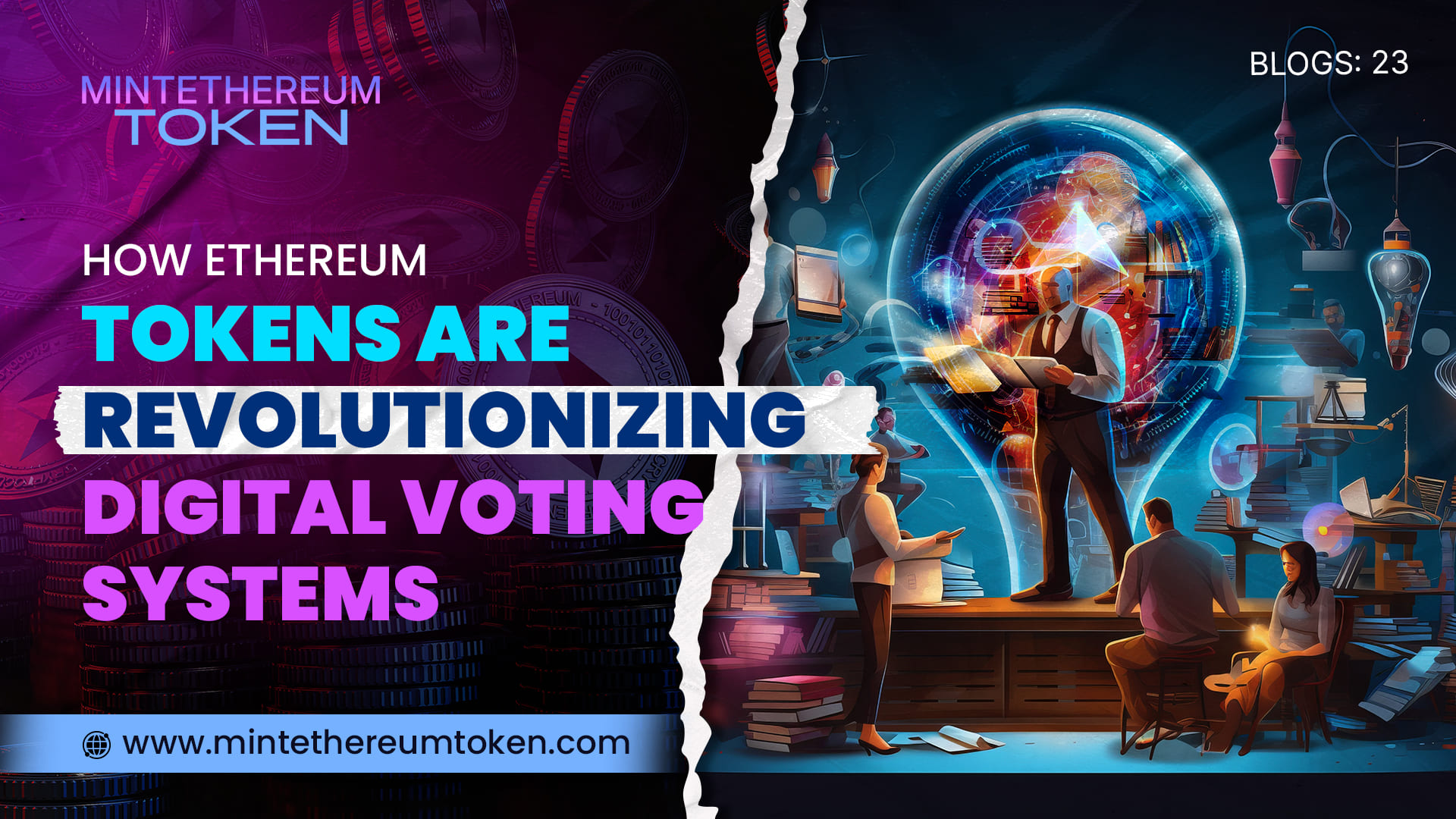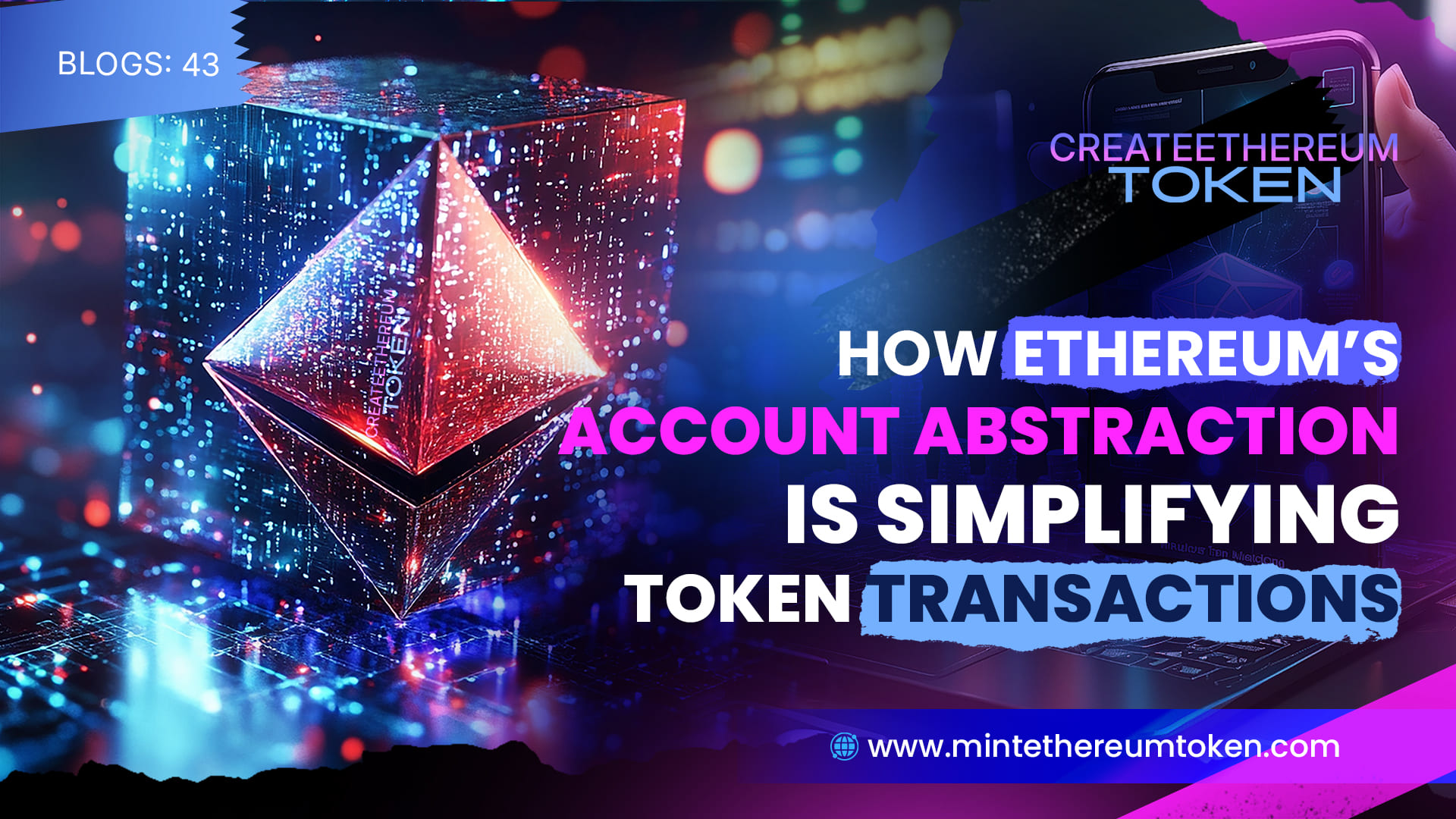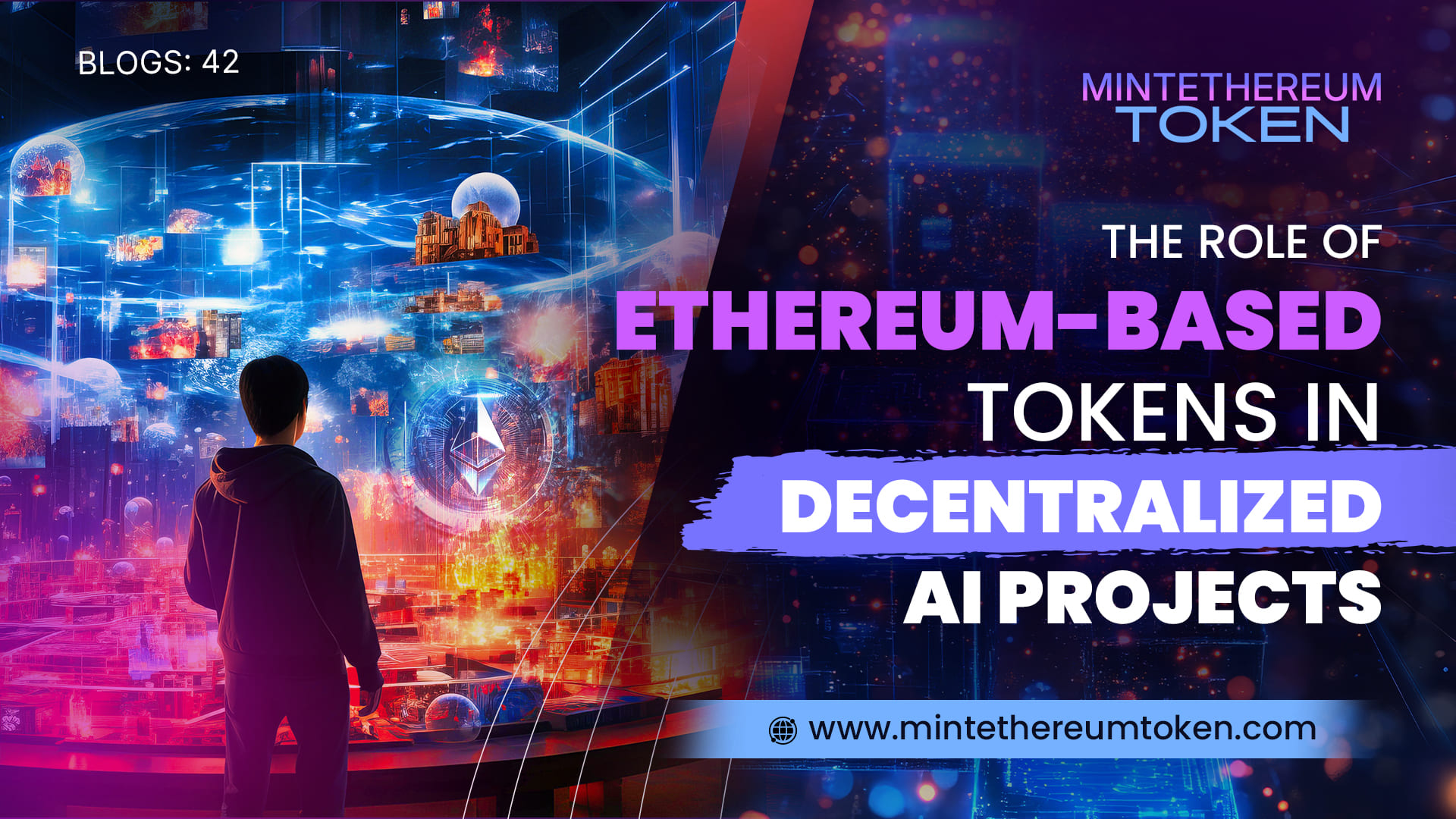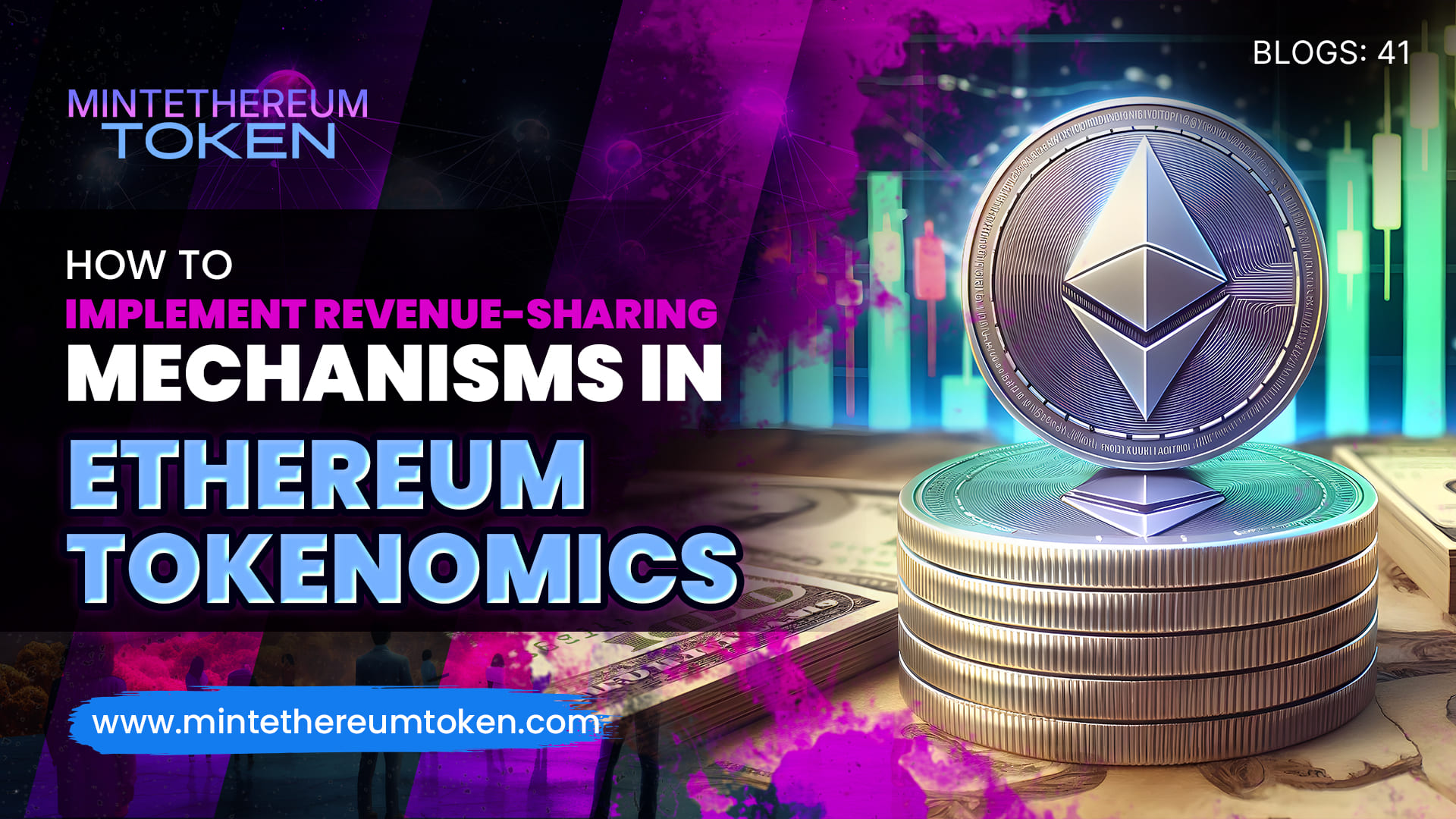December 22, 2024
How Ethereum Tokens Are Revolutionizing Digital Voting Systems
Ethereum tokens are not just reshaping the financial world—they are revolutionizing governance through secure, transparent, and efficient digital voting systems. By leveraging blockchain technology, Ethereum tokens offer solutions to common challenges in traditional voting, such as fraud, lack of transparency, and limited accessibility.
Why Digital Voting Needs Blockchain
Traditional voting systems often face challenges, including:
- Lack of Transparency: Limited insight into how votes are counted and verified.
- Security Risks: Susceptibility to fraud and tampering.
- Accessibility Issues: Inconvenience for voters due to physical polling locations or restricted online systems.
Blockchain technology, particularly Ethereum, provides a secure and transparent foundation to overcome these issues, paving the way for a new era of digital voting.
Key Features of Ethereum-Powered Voting Systems
1. Transparency and Immutability
Every vote cast using Ethereum tokens is recorded on the blockchain, creating a transparent and tamper-proof ledger. This ensures that all votes can be audited without compromising voter privacy.
2. Decentralized Governance
Ethereum enables decentralized voting systems where no single entity controls the process. This eliminates potential manipulation and ensures fairness.
3. Tokenized Voting Mechanisms
Ethereum tokens can be used as voting instruments, representing a secure, verifiable way for individuals to cast their votes. Smart contracts automate vote collection and tallying, ensuring accuracy.
4. Accessibility and Inclusivity
Ethereum voting systems can be accessed globally, enabling participation from anyone with an internet connection. This democratizes the voting process and encourages broader participation.
How Ethereum Tokens Work in Voting
Ethereum tokens play a crucial role in digital voting by:
- Acting as Votes: Each token represents one vote, ensuring precise and secure tallies.
- Enabling Weighted Voting: In governance systems, certain stakeholders may have more influence. Token weighting allows for proportional voting.
- Automating Results: Smart contracts execute vote counting automatically once the voting period ends, ensuring rapid and error-free outcomes.
Real-World Use Cases
1. Decentralized Autonomous Organizations (DAOs)
Ethereum tokens are widely used in DAOs, where members vote on proposals and changes to the organization. Popular projects like MakerDAO and Uniswap leverage Ethereum-based voting mechanisms.
2. Corporate Governance
Companies are adopting Ethereum tokens to allow shareholders to vote on corporate decisions, such as board appointments or financial strategies.
3. Political Elections
While still in early stages, Ethereum-based voting systems are being tested for political elections to ensure transparency and security.
4. Community Decision-Making
Many blockchain projects use token-based voting to decide on key features, partnerships, or fund allocations, fostering active community engagement.
Advantages of Ethereum-Based Voting
- Security: Blockchain’s encryption ensures that votes cannot be altered or deleted.
- Cost-Effectiveness: Reduces the need for physical polling stations and manual vote counting.
- Scalability: Ethereum’s ecosystem supports large-scale voting systems with millions of participants.
- Inclusivity: Encourages participation from diverse communities, regardless of location.
Challenges to Overcome
Despite its advantages, Ethereum-powered voting systems face certain hurdles:
- Scalability: High gas fees on Ethereum can make large-scale voting expensive. However, Layer 2 solutions like Polygon are addressing this issue.
- Education: Many people are unfamiliar with blockchain technology, requiring efforts to educate voters.
- Regulatory Compliance: Digital voting systems must comply with local laws and regulations.
The Future of Digital Voting on Ethereum
As blockchain technology evolves, Ethereum is set to play a pivotal role in transforming voting systems. Upgrades like Ethereum 2.0 and the adoption of Layer 2 solutions will enhance scalability and affordability, making blockchain-based voting a mainstream reality.
Conclusion
Ethereum tokens are revolutionizing digital voting systems by providing a secure, transparent, and inclusive platform. From decentralized organizations to political elections, Ethereum is paving the way for a future where every vote truly counts.






